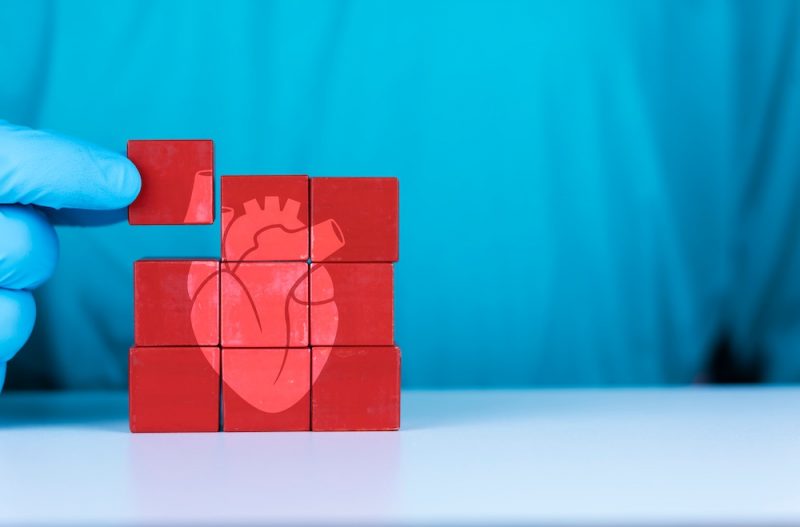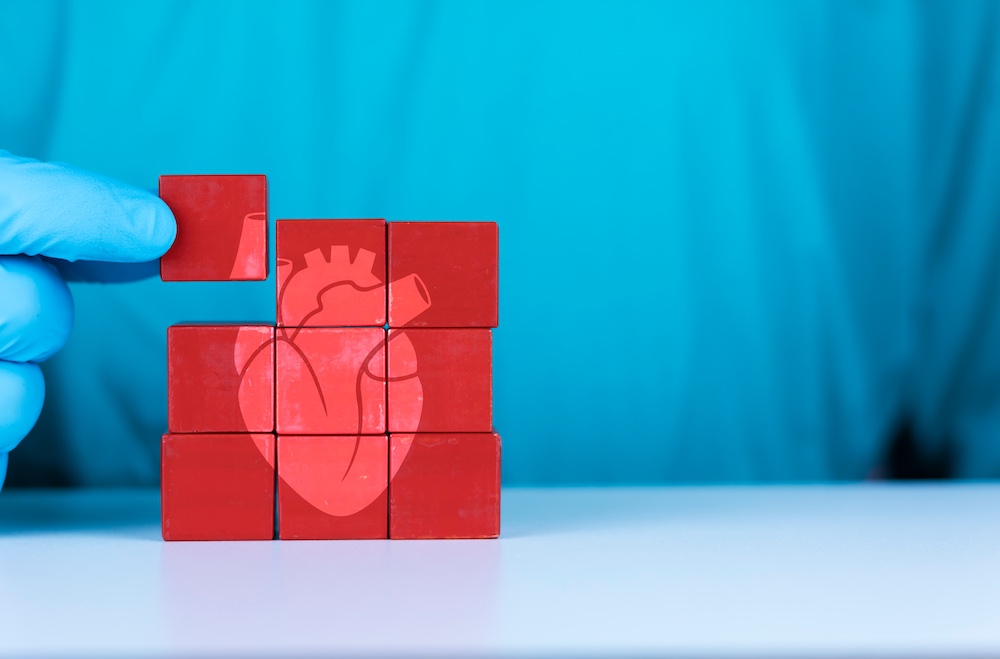The immune reaction that occurs in the hearts of patients taking checkpoint inhibitors who develop immune checkpoint myocarditis may be distinct from the immune responses occurring in the tumours of these patients. The study, published in in Nature, 6 November, identifies cytotoxic T cells, dendritic cells, and inflammatory fibroblasts as the likely mediators of the cardiac pathology.
“Our results provide a more detailed picture of what’s happening in the heart and suggest intriguing new ways forward to improve patient care,” says co-senior author Alexandra-Chloe Villani, from Massachusetts General Hospital (MGH) and Broad Institute of MIT and Harvard. The study, she adds, is the first to rigorously examine the intracardiac biology of human checkpoint inhibitor myocarditis across heart, blood and tumour tissue compartments.
Approximately one-third of patients with cancer in the US are eligible to receive immune checkpoint inhibitors (ICIs). Most patients receiving these drugs develop at least one type of toxicity, with 10–50% developing a severe complication. Arguably, the most severe is checkpoint myocarditis, which occurs in approximately 1% of patients treated with immune checkpoint inhibitors. Despite corticosteroid treatment, the incidence of major adverse cardiac events in ICI-associated myocarditis remains high, ranging from 25 to 50%.
For the current study, the investigators obtained heart, blood and tumour samples from 28 patients with ICI-associated myocarditis and from 41 non-myocarditis controls. The heart samples were obtained either during clinically-indicated endomyocardial biopsy procedures or from autopsies conducted within the first six hours after death. A variety of tools were then used to analyse samples, including single cell RNA sequencing (scRNA-seq), T-cell receptor sequencing (TCR-seq), circulating protein immunoassays, microscopy, and T-cell receptor functional assays.
The main findings of the study included:
- Increased frequencies and co-localisation of cytotoxic T cells, conventional dendritic cells, and inflammatory fibroblasts in immune-related myocarditis heart tissue.
- Decreased frequencies of plasmacytoid dendritic cells, conventional dendritic cells, and B-lineage cells, but an increased frequency of other mononuclear phagocytes in the blood of immune-related myocarditis patients.
- The presence of heart-expanded T cell clones in a population of cycling CD8 T cells in the blood being associated with fatal immune-related myocarditis case status.
“Until now, a role for T cells and macrophages was hypothesised based on descriptive histopathologic studies. The more detailed investigations in our paper now nominate cytotoxic T cells, dendritic cells, and inflammatory fibroblasts as likely cellular mediators of the observed cardiac pathology in ICI myocarditis,” co-first author and oncologist Steve Blum, from MGH and the Broad Institute, tells Cancerworld. “We hypothesise that these three populations are part of an inflammatory cascade that is triggered by the use of ICI drugs, though why this occurs in only approximately 1% of ICI recipients remains elusive.”
An additional finding was that T cell clones enriched in heart tissue were largely distinct from those enriched in paired tumour tissue. “These nonoverlapping repertoires argue against a model of ICI-associated myocarditis in which the T-cell responses in the heart and tumour are directed against a common antigen in at least a large fraction of patients. The finding additionally supports efforts to identify therapies that can attenuate cardiac inflammation while preserving anti-tumour immunity,” says co-first author Daniel Zlotoff, a cardiologist at MGH and the Broad Institute.
Furthermore, across 52 T cell clones derived from eight patients, the team did not identify any that recognised the putative cardiac autoantigens α-myosin, troponin I, or troponin T. A prior publication had suggested that T cells specific for α-myosin were drivers of ICI myocarditis pathophysiology. “While we cannot exclude the possibility that infrequent heart T cell clones may recognize α-myosin, our findings suggest that the most abundant clones recognise another antigen,” says co-senior author and MGH oncologist Kerry Reynolds.
Going forward, the team are looking to identify the antigens in the heart targeted by the cardiac T cells in ICI myocarditis. “Further investigation of immunologically active factors in the blood of ICI myocarditis patients could lead to identification of circulating biomarkers that would increase our ability to risk-stratify, diagnose, and treat these patients,” says Villani.
Already, findings from the current study have been used to support the phase 3 ATRIUM (AbatacepT foR ImmUne checkpoint inhibitor associated Myocarditis) trial (NCT05335928), which is investigating use of abatacept in 390 patients with ICI-associated myocarditis enrolled across 48 sites. The primary outcome of the study, which started enrolling patients in June 2022 and is led by Tomas Neilan and Paul Ridker, is to assess the reduction in major adverse cardiac events (including cardiovascular death, non-fatal sudden cardiac arrest, cardiogenic shock, significant ventricular arrhythmias, significant bradyarrhythmia, or incident heart failure). “Abatacept inhibits T cell activation by binding to CD80 and CD86, thereby blocking their interaction with the CD28 co-stimulatory receptor,” explains Neilan. “Our study showed that these pathways are activated in ICI myocarditis and that targeting these pathways appears logical.”












